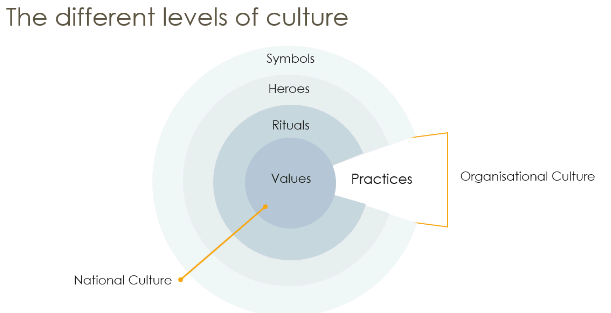By KYLE HEGARTY
(Editor’s note: The Globalists is part of Dispatches’ Tech Tuesday series covering technology and global management in Europe and Asia.)
Congratulations! You’ve just been promoted. The company wants to take all that great work you’ve done with your team and repeat the success at the global level.
 You’ve got good instincts, you’re a “people person” and have a proven track record of getting results.
You’ve got good instincts, you’re a “people person” and have a proven track record of getting results.
Transitioning into a global role is definitely as exciting as it is challenging. There are new markets to consider, teammates spread out around the planet and time zones, lots of time zones. Kiss your 9-to-5 work life goodbye.
But it could be a trap!
Many who transition into global team roles struggle, at best, or completely fail within the first year. Finding honest data about success rates is difficult. But after observing this phenomenon for more than 15 years, it’s clear this is a high-risk career move and potentially expensive gamble on the part of the company.
Why is managing teams globally so tough? It’s because the world is anything but flat. Distance and cultural differences still matter a great deal.
Another way to say it:
Communication technology has become insanely easier. Communication has not.
Our old fashioned caveman brains can’t keep up with world-flattening technology. Crystal clear conference calls mean little when people aren’t understanding each other.
Common global team breakdowns include broken deadlines, poor delivery and missed targets.
Common complaints include statements such as:
“He doesn’t understand how things work in our region.”
“She committed to doing something and didn’t tell me it was going to be delayed.”
“These guys don’t speak up on conference calls so we don’t know what they’re thinking.”
“He’s not willing to share his opinions.”
It goes on and on. When a problem arises, people tend to take sides quickly and dig in causing issues to worsen and morale to plummet.
Trust, if it existed at all, evaporates.
Terms like “Silos,” “Turf Wars,” “Fiefdoms” and “Culture Clash” are common in companies where cross-border challenges strangle productivity and progress.
What’s a manager to do?
Here are 5 tips:
 1) Start by going backward
1) Start by going backward
Managing someone with a similar cultural background involves certain unwritten rules we often don’t consider.
You already “get” each other at a certain level. If you are from Boston and your new teammate is from Denver, you already have unspoken connections and commonalities. You can immediately discuss sports teams as one example. “The Broncos got the better of us this year, but Brady’s going to come back big-time next season.”
You’ve got more commonalities than you realize and that becomes apparent once your teammates are on the other side of the planet and those basic connections don’t yet exist.
The first mistake is when this point is ignored.
Put a plan in place to spend more time getting to know each person on the team. More time than you’ve ever planned for in the past.
Start by going backwards.
Your colleague in Delhi probably doesn’t care about your opinions on Deflategate, so start thinking up some good questions about his background. If you’re both into sports, get ready to learn a lot about cricket.
Once you can identify Feroz Shah Kotla, only then should you attempt to talk about the next game at Gillette Stadium and Tom Brady’s innocence.
It’s up to you to bridge that gap. If sports won’t work, find other topics. Food is always a good one.
2) Use Video conference calls
We’ve got the technology, so let’s use it to help with communication.
Body language matters a lot. In fact, according to a lot of research, it’s the most important means of communication, more important than the words we use. And while body language around the world varies widely, being able to see each other helps people feel comfortable faster.
3) Move team meetings around to spread out the misery of late night calls
Many companies hold global calls and the people in APAC get stuck on the night shift. It’s not fun.
Here’s an idea: record one of your calls. Then wake up at 2 a.m. and listen to that call. See if these meetings can be done more efficiently!
4) Get your team to learn and discuss Cultural Dimensions
 This is a great field of research that can get everyone thinking about cultural differences and how they impact the team.
This is a great field of research that can get everyone thinking about cultural differences and how they impact the team.
For example, if you’ve got a manager from a low power distance/high individualism culture and she’s managing someone from a high power distance / low individualism culture, there’s going to be costly misunderstandings, guaranteed.
Learn the dimensions. Invite an expert in to give a talk or seminar. Use these as tools to drive discussions during your 1:1 conversations and team sessions. Once you better understand Cultural Dimensions, you can begin the process of adjusting your behaviour accordingly.
5) Enjoy the ride!
You’ve got to make sure you’re excited about managing teams globally.
This means staying curious and engaging with the team in unfamiliar ways. Sincere curiosity means asking questions. Asking questions means listening more and talking less. You didn’t need all that sleep anyway.
Managing globally does not have to be a trap but does require different approaches to team building. You’re not starting from the same level of understanding, so you need to take a step back and spend more time getting to know people in ways you don’t have back home.
 About the author:
About the author:
Kyle Hegarty is managing director, Asia Pacific, for TSL Marketing, a global integrated marketing firm.
Kyle helps companies develop and expand their footprints in Asia Pacific markets specifically by focusing on cross-cultural leadership strategies and sales and marketing solutions to drive growth.
He provides teams with the Sandler Sales training methodology.
Clients include: Akamai, Oracle, IBM, Fuji Xerox, Trade Gecko, Hay Group, Bazaar Voice, Google, Amazon Web Services, Avaya, Genpact & Sungard.
You can see Kyle’s full LinkedIn bio here.
You can see more The Globalists international management posts here:
• ‘I can’t make your employees more entrepreneurial … only you can’ – Albrecht Stahmer
• Where is your country on the process-outcome continuum? – Darin Williams
• Asoh Defense – ‘Companies must empower leaders to hold themselves accountable’ – Albrecht Stahmer
• ‘The Culture Map’: Don’t fight the differences, global managers … leverage them – Albrecht Stahmer














